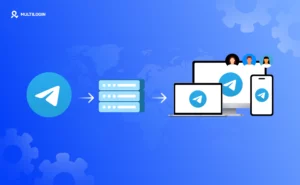Table of Contents
Datacenter Proxy
Datacenter proxies are an essential tool for businesses and individuals looking to enhance their online activities.
This guide will explain what datacenter proxies are, how they work, their benefits, and how they compare to other types of proxies.
What is a Datacenter Proxy?
A datacenter proxy is a type of proxy server that originates from a data center rather than an Internet Service Provider (ISP). These proxies are not associated with a specific internet connection or an ISP but are created in bulk in data centers.
They provide an additional layer of anonymity and are widely used for various purposes, including web scraping, bypassing geo-restrictions, and enhancing privacy.
How Datacenter Proxies Work
Datacenter proxies act as intermediaries between the user and the internet. Here’s a simplified explanation of how they work:
- User Request: The user sends a request to access a website or resource on the internet.
- Proxy Interception: The datacenter proxy server intercepts this request and forwards it to the destination server using its own IP address.
- Server Response: The destination server processes the request and sends the response back to the proxy server.
- Proxy Response: The proxy server forwards the response to the user, masking the user’s original IP address.
Benefits of Using Datacenter Proxies
- Speed and Performance
Datacenter proxies are known for their high speed and reliability. Since they are in data centers with high-bandwidth internet connections, they can handle large amounts of data quickly and efficiently.
- Anonymity
These proxies help maintain user anonymity by masking the user’s IP address with one from the datacenter. This makes it difficult for websites to track the user’s actual location or identity.
- Cost-Effectiveness
Compared to residential proxies, datacenter proxies are generally more affordable. This makes them an attractive option for businesses and individuals who need many proxies for tasks like web scraping or automated testing.
- Scalability
Datacenter proxies can be scaled easily. Data centers can create a large number of proxy IPs quickly, making it easy for users to get the volume they need.
- Accessibility
Datacenter proxies can help bypass geo-restrictions and access content that may be blocked in certain regions. This is particularly useful for accessing global content or testing applications in different locations.
Types of Datacenter Proxies
- Shared Datacenter Proxies
These proxies are shared among multiple users. While they are more cost-effective, they may have slower speeds and higher chances of being detected and blocked by websites.
- Dedicated Datacenter Proxies
Dedicated proxies are used exclusively by one user. They offer higher performance and a lower risk of being blacklisted, making them ideal for tasks that require consistent and reliable access.
- Rotating Datacenter Proxies
These proxies rotate IP addresses at regular intervals or per request. This helps in maintaining anonymity and avoiding detection, especially useful for web scraping and automated tasks.
Datacenter Proxies vs. Residential Proxies
Datacenter Proxies
- Speed: Generally faster due to high-bandwidth connections.
- Cost: More affordable.
- Anonymity: Provides a high level of anonymity but can be easier to detect as they come from data centers.
- Scalability: Easily scalable to meet high-volume needs.
Residential Proxies
- Speed: Slower compared to datacenter proxies.
- Cost: More expensive.
- Anonymity: Higher level of trust and harder to detect since they come from real residential ISPs.
- Scalability: Limited scalability due to dependency on residential IP availability.
Use Cases for Datacenter Proxies
- Web Scraping
Datacenter proxies are widely used for web scraping. They allow users to collect data from websites without getting blocked, as the proxies can rotate IPs and mask the user’s identity.
- Market Research
Businesses use datacenter proxies to gather competitive intelligence, monitor prices, and conduct market research without revealing their identity.
- SEO Monitoring
Proxies help SEO professionals track search engine rankings and perform keyword research without getting blocked by search engines.
- Accessing Geo-Restricted Content
Users can bypass geo-restrictions and access content that is not available in their region by using datacenter proxies.
- Security and Privacy
Individuals and businesses use datacenter proxies to enhance their online privacy and protect sensitive information from prying eyes.
Datacenter proxies, especially shared ones, can pose security risks if they are misconfigured or if the datacenter itself is compromised. Users should be aware of these risks and take appropriate precautions.
Key Takeaways
Datacenter proxies are versatile tools that offer numerous benefits, including high speed, enhanced anonymity, and cost-effectiveness. They are ideal for tasks like web scraping, market research, and accessing geo-restricted content.
Understanding the different types of datacenter proxies and their use cases can help businesses and individuals choose the right solution for their needs.
People Also Ask
Shared proxies are used by multiple users, while dedicated proxies are used exclusively by one user, offering higher performance and lower risk of being blocked.
Datacenter proxies are faster and more affordable, while residential proxies offer higher trust and are harder to detect but are more expensive and less scalable.
Benefits include high speed and performance, cost-effectiveness, scalability, anonymity, and the ability to bypass geo-restrictions.
Related Topics

Best Proxy For Telegram in 2026: A Complete Guide to Top Providers and Alternatives
Proxies for Telegram are tools that help you use the messenger